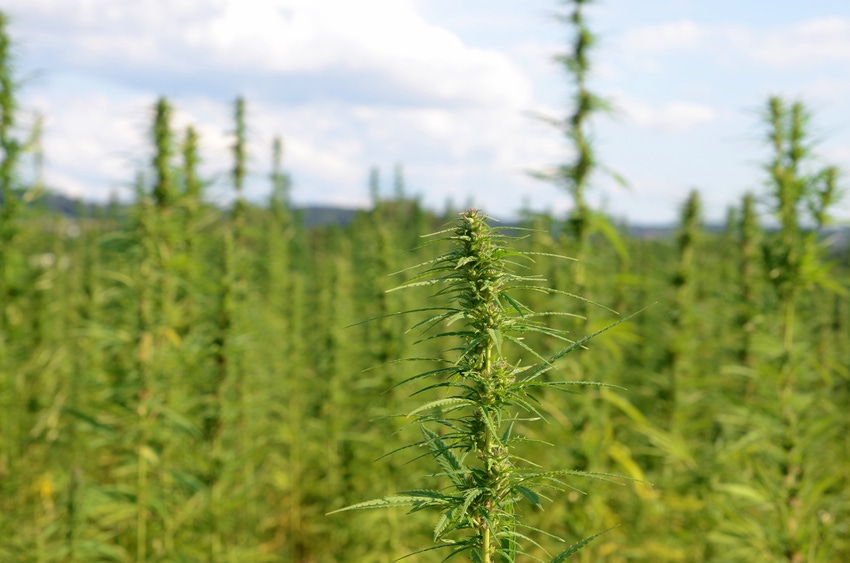August 22, 2018

By now, many farmers have warmed up to the scientific position that hemp and its psychotropic cousin, the marijuana plant are not the same thing. That acceptance is now being echoed in both the Senate and House versions of the New 2018 Farm Bill which, if approved in its current form, would remove hemp from the list of controlled substances under federal law, clearing the way for farmers across the country to establish industrial hemp farm operations.
Currently hemp is still classified as a Type 1 controlled substance, and as such cannot be grown commercially without a special permit and as a part of a university-sponsored test program authorized in the 2014 Farm Bill. But attitudes among both Republican and Democrat lawmakers are changing, with many who were once opposed to hemp farming warming up to the idea.
Research in recent years has demonstrated that hemp lacks the ability to provide adequate amounts of tetrahydrocannabinol, or THC, in sufficient strength to produce a psychotropic effect when consumed. Any attempt to use hemp as a recreational drug is effectively impossible.
Senate majority leader Mitch McConnell (R-KY) is the Senate’s primary lawmaker that leads the fight to legalize a cannabis crop in the new Farm Bill, in spite of hemp's close physical resemblance to marijuana. Federal drug laws have maintained hemp as a controlled substance since the adoption of the Controlled Substances Act (CSA) of 1970. But McConnell. and a growing number of other lawmakers in Congress, want to reintroduce hemp as a viable crop for the agricultural industry, and for good reason.
In the early 17th century, the British Crown required American colonists to step up efforts to support England's need for new resources. A Virginia Company was authorized to require colonists in Jamestown to grow and export hemp to further the expansion of England's influence around the world. In later years, after the colonies won their independence from the Crown, hemp was a major agricultural crop in the Americas. Hemp was used to develop fiber for clothing, and was the primary material used for sails to support growing naval fleets across the civilized world.
"A good many of our Founding Fathers grew hemp. In spite of being outlawed in the early 20th century, World War II caused lawmakers to reauthorize hemp farming in support of the war...used primarily to make military uniforms and gear," says Rick Rainbolt of the Hemp Geo Institute (HGI), an advocacy group that supports agricultural production of industrial hemp. "The U.S. is the largest user of hemp products, which are all legal by the way, yet we import almost all of the hemp we require from other countries."
Rainbolt says politicians at the state, local and national level have been slow to come around to the advantages and safety of growing hemp, but that has been changing in recent years.
"Currently the production of CBD oil, or cannabidiol oil, is legal in most states across the U.S., and it currently offers the best opportunity to monetize industrial hemp production in the U.S. at the present time. That's a growing domestic market," Rainbolt says.
But hemp is used extensively in many over the counter products used everyday by Americans in every state. Hemp seeds and flowers are used in many health foods, organic body care products, and other nutraceuticals. The fibers and stalks can and are used in hemp clothing. construction materials, the production of paper products and plastic composites, and can be processed into biofuels.
In support of excluding hemp from classification as a controlled substance, lawmakers and farm groups alike have argued the benefits of hemp as a farm crop are many. For one, there is a domestic market for hemp production, though there is currently a shortage of processing facilities. Supporters say that would change quickly if hemp production was allowed by federal law.
Supporters say hemp plants are a cash crop that have proven to be hardy and can be grown in the poorest of soils, is drought tolerant and can effectively crowd out other types of weeds that are often a problem for crop producers.
The Farm Bureau, National Association of State Departments of Agriculture, National Farmers Union, and the National Conference of State Legislatures have all argued in recent years that lawmakers need to remove hemp from the same list that has relegated marijuana to an illegal controlled substance under federal drug laws, and many believe the 2018 Farm Bill may have the best chance yet to open up hemp farming to mainstream agriculture.
Rainbolt's Hemp Geo Institute is helping to pave the way for farmer support of legalized hemp farming. The group has staged numerous conferences and workshops in many states in the Southeast. In recent months, a majority of those workshops have sold out. His latest and upcoming symposium is titled a Master Grower Training Session scheduled to take place August 25 in Oklahoma City.
"Our six previous symposiums in North Carolina sold-out quickly and I expect the same will happen with our Oklahoma event. The event venue can only accommodate 200 attendees but we're beginning to fill up fast," he said.
The Oklahoma sessions will feature a number of topic speakers focusing on various aspects of hemp production and CBD oil extraction and opportunities. The sessions are designed to provide information about hemp fiber and seed production and many other aspects of developing a successful hemp operation. Over a half dozen topic speakers will lead symposium classes on various aspects of growing hemp.
For more information or to register for the event, Rainbolt can be reached at 704-965-8935.
You May Also Like




